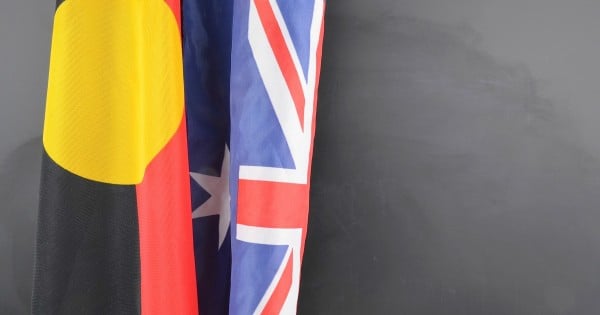
Growing up in suburban Adelaide as an Aboriginal kid in the 70’s and 80’s wasn’t exactly a joyous childhood. Sure there were fun times like being able to play in your street with the next door neighbours, riding your bike, playing Hopscotch, or Hide ‘n’ Seek.
I’m the product of an Aboriginal mother and a Dutch father. My mother is an Arrente woman. Her mother was born at Ntaria also known as Hermannsburg Mission on Western Arrente country in Central Australia. Her father was born under the shade of a Coolibah Tree at Adelaide River, in the Northern Territory. My father, the son of a Dutch Jew, who migrated to Australia from Holland as a teenager. Their marriage in 1964 made newspaper headlines, “Migrant marries native girl”.
My parents separated when I was only 3 years old. While I maintained a strong connection to my Dutch side of the family, I grew up black. Being the only Aboriginal kid at primary school and one of only 3 Aboriginal kids at high school does not bring back fond memories. In fact it’s a time I’d rather forget.
Most of my time at high school was spent trying to lay low and not be noticed just in case I would be singled out by other kids, non-Aboriginal kids. Names like ‘dirty boong’ or ‘coon’ and phrases like, “watch out the black might rub off”, still haunt me. I remember walking passed a group of students in the school yard or on my way home, and deliberately walking in another direction or taking a different route home. Those were just a few of the survival tactics I used to avoid kids from school and to avoid the barrage of derogatory comments. Racism during my primary and secondary school years was rife.
Watch Kevin Rudd’s apology here. Post continues after video…

Top Comments
I am so sorry that you experience the things you do, just because of your race. Yesterday at work, an 18 year old staff member of mine made a comment that "oh those aboriginal people get everything" after I had realised that I could receive additional funding to assist an Aboriginal student doing placement with me. I had a chat with her and tried to explain what closing the gap meant. Growing up in Sydney, she has absolutely no idea about the sort of disparities Aboriginal people face. This beautiful land we call home was initially yours and the things that were done to Aborginal people makes me sick to the stomach. I'm a health professional and a migrant and I do as much as I can to support Aboriginal and TSI health care and education. Every year I work to assist aspiring Aboriginal health professionals by mentoring them and showing them the ropes in how my job works. For my Aboriginal patients I ensure I do whatever I can to help optimise their health. It's not much but if everyone was contributing we could close the gap a lot faster.
I am not a very patriotic person generally, but when you said that your Grandfather was born under the shade of a coolibah tree, I definitely felt a twinge (I will have Waltzing Matilda stuck in my head for the rest of the day). Thank you for writing this insightful and informative article.